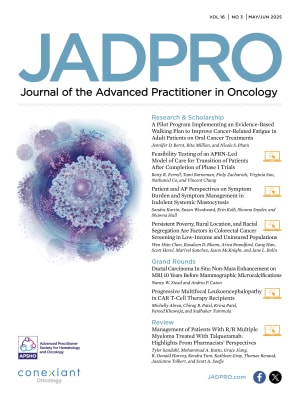Abstract
Abstract
Biosimilars are biologic products that are highly similar, but not identical, to a licensed reference (or “originator”) biologic product. These agents have the potential to provide efficiencies and improve access to treatment for patients. Biosimilars are currently available for use in clinical practice, including oncology indications, and several more are in clinical development. Due to several key differences in their fundamental properties, production and manufacturing of biosimilars is more complex compared with that of small-molecule generic drugs. Accordingly, the generic drug approval process is not suitable or transferable to biosimilars, the approval of which involves extensive and thorough comparison with the originator biologic. Advanced practice providers play an important role in evaluating treatment options available to patients, prescribing, patient education, and product monitoring. In order to perform these tasks effectively, advanced practice providers should understand the concepts related to biosimilars in clinical practice, particularly regarding extrapolation to other indications, product labeling, interchangeability between products, and routine pharmacovigilance, among other clinical considerations. However, many health-care providers have limited awareness and minimal experience regarding biosimilars. Thus, the purpose of this review is to provide an overview of biosimilars and discuss the clinical considerations for oncology advanced practice providers concerning these therapies.







